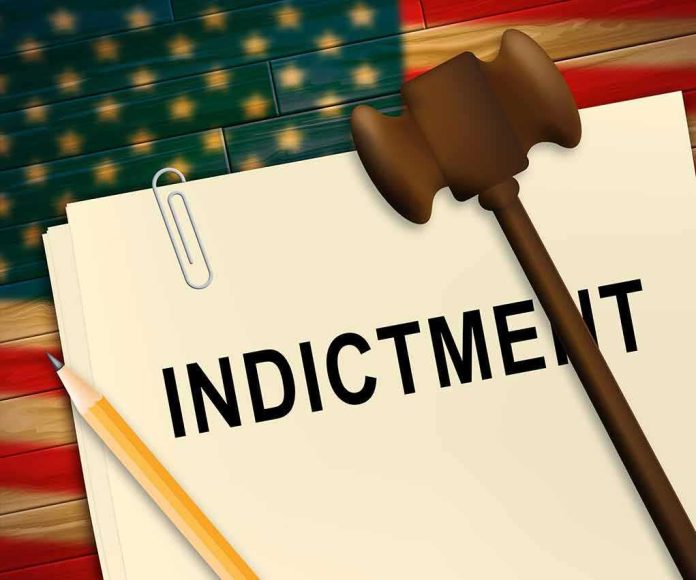
For the first time in American history, a former National Security Advisor stands indicted under the Espionage Act, and the shockwaves reach far beyond John Bolton’s own fate—raising the question: is this justice served, or a new front in an ever-escalating political war?
Story Snapshot
- John Bolton faces 18 federal counts for mishandling classified national defense information, including unlawful transmission and retention.
- This is the first Espionage Act indictment against a former National Security Advisor, with allegations he used personal channels to share secrets.
- The charges follow a string of prosecutions targeting high-profile critics of Donald Trump, fueling debate over politicization of American justice.
- The outcome could redefine how America handles classified leaks, political dissent, and the boundaries of executive power.
Bolton’s Indictment: Unprecedented and Unforgiving
Federal prosecutors unsealed an 18-count indictment against John Bolton, alleging a pattern of reckless disregard for classified information during and after his tenure as National Security Advisor. According to the charges, Bolton transmitted Top Secret/SCI documents to unauthorized individuals—his wife and daughter—using personal email and encrypted messaging apps. Investigators also found sensitive files stored at his Maryland residence and on various personal devices. The Department of Justice, led by Attorney General Pamela Bondi, declared the case a matter of “grave national security risk.”
The indictment is extraordinary not just for its content, but for its target. No former National Security Advisor has ever faced Espionage Act prosecution before. The DOJ’s move follows a deep FBI investigation, culminating in an August 2025 raid on Bolton’s home and D.C. office. The legal jeopardy is real: with each count carrying up to a decade in prison, Bolton’s future—and his legacy—hang in the balance.
Political Retribution or Rule of Law Reasserted?
The charges against Bolton follow a pattern that is impossible to ignore. In the past year, federal prosecutors have targeted other prominent critics of Donald Trump, including former FBI director James Comey and New York Attorney General Letitia James. To critics, this wave of indictments signals a weaponization of the Department of Justice to settle old scores. Bolton himself wasted no time branding the prosecution as “political retribution, plain and simple,” arguing that his fall from Trump’s favor—and his scathing memoir—made him a marked man.
Supporters of the prosecution counter that national security is not a partisan issue. Mishandling top secret documents, they say, is a threat regardless of who holds power. Attorney General Bondi insists, “No one is above the law,” a refrain echoed by DOJ spokespeople and law enforcement officials. This hard line resonates with Americans who watched previous classified information scandals, from the Clinton email saga to the Petraeus affair, and wondered if accountability is reserved only for the powerless.
Legal, Political, and Cultural Fallout
Beneath the legal wrangling lies a deeper battle for the soul of American governance. If convicted, Bolton’s downfall will reverberate through the intelligence community, the publishing industry, and the corridors of executive power. Officials who leak or publish classified material—no matter their motives—could face a new era of aggressive prosecution. Political insiders warn of a chilling effect, where whistleblowers and memoir authors alike might think twice before exposing government misdeeds or penning tell-all accounts.
The American public, already skeptical of the justice system’s neutrality, now watches as the nation’s most sensitive secrets become pawns in political chess. Bolton’s indictment is both a warning and a precedent: the boundaries of law, loyalty, and liberty are being redrawn, and no one at the top is untouchable.
Expert Perspectives: Divided but Decisive
Legal experts agree that the scope and gravity of the charges against Bolton are without modern parallel. Some constitutional scholars warn that prosecuting former officials under the Espionage Act risks politicizing the impartial machinery of justice. Others argue that the integrity of America’s secrets and the trust of its allies demand strict accountability, regardless of rank or political history.
National security analysts caution that if the allegations are true, the exposure of Top Secret/SCI material could compromise intelligence sources and endanger lives. Yet the case’s timing and context—amid a sweep of prosecutions against Trump’s critics—cast a long shadow of doubt. As legal proceedings begin, the nation faces a test: can the law be enforced without becoming a weapon? The answer will shape not just Bolton’s destiny, but the future of executive power, dissent, and the rule of law itself.









